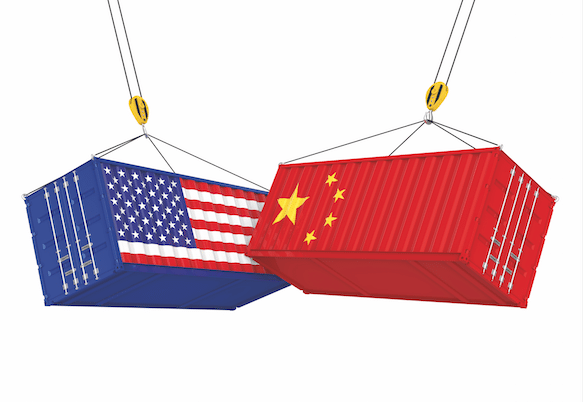US-China trade tensions have been rekindled, causing further uncertainty for the financial markets.
US President Donald Trump has threatened to terminate the current trade deal if China fails to meet its purchase commitments. Under the terms of the January 2020 trade deal, which called for a ceasefire in the two-year conflict, China agreed to buy $200 billion worth of American goods.
Trump’s recent observations of China’s failure to meet the conditions of the agreement follows severe criticism of China’s handling of the Coronavirus outbreak in Wuhan.
Frederique Carrier, head of investment strategy, RBC Wealth Management, says: “Will it come back in full force like it did during the trade war? We doubt it, though we wouldn’t underestimate the possibility of missteps from either side, which could have serious ramifications at a time when the global economy is particularly weak. We reiterate our message to keep some powder dry.”
The US administration has recently taken several steps to diminish security risks to US infrastructure such as imposing new export controls on technologies with both military and civilian applications and new restrictions on the import of foreign parts for US power plants and electricity grids.
While trade tensions may be defused, Carrier believes the direction of the US-China relationship is likely to be towards deterioration.
She explains: “Since the global financial crisis, as US households reduced debt and China focused on domestic consumption and self-sufficiency, the two economic powers have drifted apart. The process has accelerated due to Chinese wages increasing, which has reduced the country’s attractiveness as a source of cheap labour, Trump’s trade war and now the global pandemic whose first hotspot was China.”
Policy regarding China is also likely to become a leading issue in the US ahead of the November 2020 presidential election, with both presidential candidates competing as to who can appear tougher on China.
According to Carrier, Trump may try to maximise political advantage over China while minimizing the adverse economic impact on the UYS. This could result in sanctions and/or tariffs. However, she warns that this could harm the US.
“Imposing tariffs while the domestic economy is growing, as in 2019, is one thing, but to do so when it is contracting is another proposition altogether. RBC already expects a severe 10.6% contraction in U.S. GDP in 2020. New tariffs would increase the uncertainty many households and businesses already face. Moreover, such a move could encourage China to retaliate.”
The impact of a US-China trade war could also have far-reaching consequences for US companies, which are struggling amid the current crisis. Most are trying to preserve dividends, sometimes at the cost of suspending share buybacks and cutting capital expenditures.
Lori Calvasina, head of US equity strategy, RBC, warns that layering in a rekindled US-China trade conflict and other negatives could be the “last straw” for a corporate sector already under duress. For the recent stock market rally to be sustainable, Calvasina says “much needs to go right” given valuations are stretched and the market seems to be assuming a strong rebound in earnings in 2021.
As a result, RBC says that should the US-China rhetoric escalate regarding both Covid-19 and trade, bouts of volatility cannot be ruled out. As such, it holds a below-benchmark or underweight position in global equities.






























